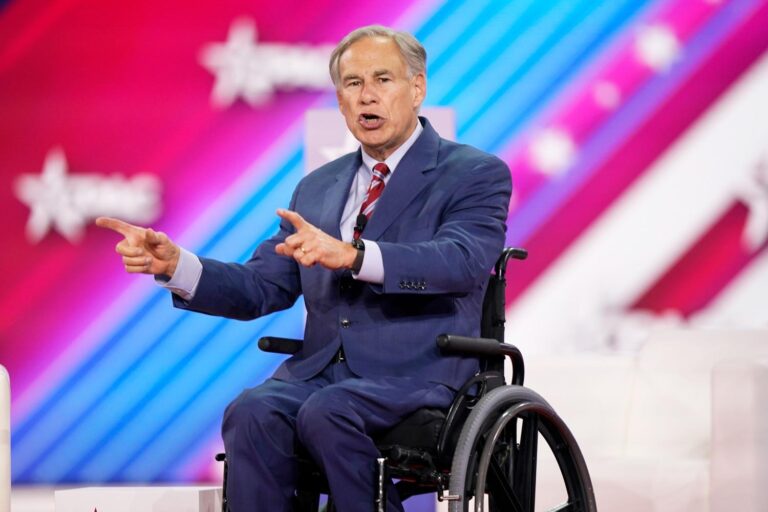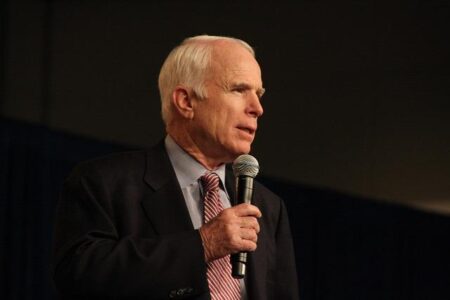Special Election Scheduled to Fill Houston’s Vacant Congressional Seat
Texas Governor Greg Abbott has officially announced that a special election will take place on July 15, 2024, to fill the congressional seat left open by Sylvester Turner’s recent resignation. Turner stepped down to dedicate his efforts fully to his role as Houston’s mayor, prompting the need for a prompt electoral process to ensure the city’s continued representation in Congress. Governor Abbott underscored the urgency of holding the election swiftly to maintain political stability and address the diverse needs of Houston’s constituents.
This upcoming election is anticipated to attract a broad spectrum of candidates from multiple political affiliations, reflecting Houston’s varied demographic and political landscape. Key dates and election details include:
- Candidate Filing Deadline: June 1, 2024
- Early Voting Window: July 3 through July 11, 2024
- Potential Runoff Election: August 5, 2024
- Polling Sites: All precincts within the congressional district will be operational
| Event | Date |
|---|---|
| Special Election Day | July 15, 2024 |
| Runoff Election (if necessary) | August 5, 2024 |
Political Repercussions of Sylvester Turner’s Resignation on Houston and Beyond
The departure of Sylvester Turner from his congressional role marks a pivotal moment for Houston’s political environment and has broader implications at the federal level. Turner’s leadership was instrumental in championing Houston’s priorities, including urban infrastructure improvements, flood mitigation initiatives, and economic revitalization efforts. His absence creates a leadership gap that local officials and stakeholders must address swiftly to maintain momentum on critical projects.
Nationally, Turner’s exit could shift the balance within key congressional committees where he held influence, potentially altering legislative agendas. The special election serves as a bellwether for political trends ahead of the 2024 midterm elections, with both major parties viewing the race as a strategic opportunity to either retain or flip the district. Notable consequences include:
- Committee Reassignments: Turner’s former committee roles will be reassigned, impacting policy focus areas.
- Electoral Significance: The election outcome may reflect broader voter attitudes and forecast midterm dynamics.
- Project Continuity Risks: Transition delays could affect funding and progress on ongoing local initiatives.
| Aspect | Local Consequences | National Consequences |
|---|---|---|
| Leadership Gap | Urgent need for a new advocate for Houston’s interests | Pending committee seat reallocations |
| Policy Direction | Potential slowdowns in infrastructure and economic projects | Possible shifts in legislative priorities |
| Political Strategy | Mobilization of local party bases intensifies | Indicator of voter mood ahead of midterms |
Prominent Contenders in Houston’s Special Congressional Election
As the special election approaches, several candidates have emerged as leading contenders to succeed Sylvester Turner. Among them is Isabella Martinez, a nonprofit leader with a strong record in affordable housing advocacy, and Marcus Thompson, a former state legislator focused on economic growth and job creation. Their campaigns highlight contrasting approaches to addressing Houston’s challenges, making the race highly competitive and closely watched.
Additional candidates gaining attention include:
- Linda Chen – an education reform advocate with extensive experience in public school administration
- David Brooks – an entrepreneur emphasizing small business support and innovation
- Fatima Ali – a healthcare professional dedicated to expanding community health services
Each candidate’s outreach and policy platforms will be critical in swaying Houston’s diverse electorate as the election nears.
Effective Voter Engagement Approaches for Houston’s Special Election
Maximizing voter participation in Houston’s upcoming special election requires targeted and culturally sensitive outreach strategies. Local organizations and civic leaders are encouraged to facilitate educational forums and provide multilingual resources to ensure all voters understand the election’s significance and procedures. Digital engagement, particularly through social media and geo-targeted online ads, will be essential to connect with younger voters and historically underrepresented groups.
Key voter mobilization tactics include:
- Promoting Early Voting: Emphasizing accessible dates and locations to accommodate voters’ schedules.
- Transportation Assistance: Organizing rideshare programs and shuttle services, especially in neighborhoods with limited transit options.
- Faith-Based Partnerships: Leveraging trusted community leaders to encourage electoral participation.
- Comprehensive Voter Education: Providing clear, multilingual information on candidates and ballot measures.
| Engagement Strategy | Target Audience | Anticipated Outcome |
|---|---|---|
| Community Information Sessions | Non-English Speaking Residents | Improved understanding of ballot content |
| Social Media Outreach | Young Adults | Increased early voting participation |
| Transportation Services | Senior Citizens | Higher turnout at polling stations |
Conclusion: Houston’s Political Future in Focus as Special Election Nears
With the special election date fast approaching, Houston residents are poised to influence the city’s congressional representation following Sylvester Turner’s departure. The contest promises to be a defining moment, with candidates presenting diverse visions for Houston’s future. Observers and voters alike will be closely monitoring the campaigns and election results, which are expected to have lasting effects on the region’s political landscape. Comprehensive coverage and updates will continue to be provided by the Houston Chronicle.




